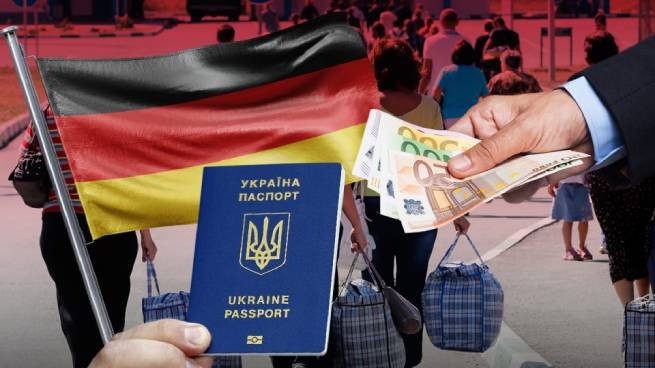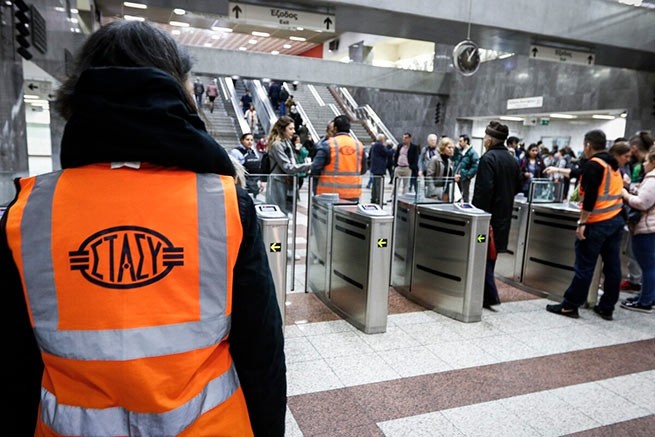Iranian port authorities say the crews of the two Greek tankers have not been arrested and are in good health. But with regard to the ships themselves (and especially their cargo), the situation is not yet clear.
Islamic Revolutionary Guard Corps warned that thecontinue the seizures of other Greek tankers located in the Persian Gulf, if “Greece continues its illegal actions.”
After armed capture of two tankers under the Greek flagPrudent Warrior” and “Delta Poseidon”) on Friday, Iranian media published a warning on behalf of the Islamic Revolutionary Guard Corps, saying that 17 Greek ships are currently in the Persian Gulf and they can confiscate them.
The official Iranian Port Authority (PMO) issued a milder statement: they said the official reason for the seizure of these ships is that they committed “marine violations”, without giving any details. The issue is being investigated “on the basis of evidence and documents.”
The PMO noted that the crews of the two ships were not arrested and are in good health. “They are on their ships in accordance with international law and are provided with the necessary services,” the Iranian port administration said.
According to the Greek edition cathimerini, both captured Greek ships were delivered to the port of Bandar Abbas on the southern coast of Iran in the Persian Gulf. Crew members are healthy. They were given back their confiscated cell phones and were allowed to contact relatives and employers over the weekend.
On board Prudent Warrior there are 23 people: 15 Filipinos, seven Greek sailors and one Cypriot. A senior executive at Polembros Shipping, which owns the ship, said Iranian port authorities boarded the tanker on Saturday and there were no complaints about their behavior towards the crew.
On the Delta Poseidonoperated by Delta Tankers, has 21 Filipinos and two Greek sailors.
Iranian Foreign Ministry spokesman Said Khatibzadeh tweeted on Saturday, highlighting the ancient ties between Iran and Greece, as well as the “mutual respect” between the peoples of the two countries:
“Our ancient ties with Greece and its great people have always been based on mutual respect. Our communications must not be hindered by deeply short-sighted miscalculations, including highway robberies ordered by a third party. The crew of the tanker is alive and well.”
Our ancient ties with Greece & its great people have always been based on mutual respect.
Our ties must not be hampered by deeply shortsighted miscalculations, including highway robbery on the command of a 3rd party.
Tankers crew are safe and in good health. pic.twitter.com/XWyIoY8bhM
— Saeed Khatibzadeh | سعید خطیبزاده (@SKhatibzadeh) May 28, 2022
Iran has repeatedly used unspecified maritime violations to justify the seizure of ships flying the flags of countries that have carried out such actions with the navy of that country. In particular, in August 2019, Greece, under pressure from the United States (as in this case), delayed Iranian tanker “Adrian Darya 1”. Then Iran, as now, warned Greece of dire consequences.
Tensions between the two countries are rising
As we reported earlier, the helicopters of the Iranian Navy landed armed troops on 2 Greek tankers. One of the ships at that time was in neutral waters. The second tanker was detained near the Iranian coast. Athens informed the European Union and the International Maritime Organization (IMO) about the incident, calling it piracy.
The incident exacerbated tensions between Greece and Iran that have been lingering for weeks. Since Greece similarly seized a tanker in April, sailing under the Russian flag and carrying 115,000 tons of Iranian oil. Last Wednesday, the Greek authorities announced that the oil would be exported to the United States at the request of Washington. Tehran condemned the actions of Greece, calling them “an international robbery.”
“Robbery against piracy”. How can this conflict be resolved?
Given the mentality of Iranian politicians, in all likelihood, Iran will confiscate the oil on board the Greek tankers and let the ships go. For the sake of appearances, they may be kept under arrest for some time, similar to how long a Russian ship with Iranian oil on board was held. This conflict may end.
However, it all depends on USA Greece. If politicians get ambitious, the conflict could escalate into similar arrests of Iranian ships in other ports or even in neutral waters, as was the case in 2019, and then Iran will begin to seize the ships of these same countries.
At the same time, Iran has no problems in this, since the Strait of Horsmuz is under the complete control of Iran, and this is the path along which, as it were, no 30% of the world transportation of oil and liquefied gas. And Greece, which is the owner of the world’s largest fleet of tankers and gas carriers, should think carefully before taking such actions. After all, 17 ships owned by Greek shipowners or sailing under the Greek flag, currently in the Persian Gulf, are, in fact, hostages of US political games.
Strait of Hormuz – vulnerable spot
The Strait of Hormuz is used by rival oil suppliers such as Saudi Arabia, Iran, the United Arab Emirates, Kuwait and Iraq. At the same time, at its narrowest point, the width of the strait barely reaches 50 kilometers, and two corridors with a depth sufficient for the passage of large tankers are no more than 3 kilometers wide each. The strait can be easily controlled, so the conflicting countries in the region regularly threaten to use this transport artery to achieve their goals.
In 2019, during a similar conflict between the US and Iran, Iranian Chief of Staff Mohammad Bagheri threatened to completely close the Strait of Hormuz if “hostile action” escalated, referring to new US sanctions against Iran over the nuclear deal dispute. According to the Iranian agency Irna, Bagheri, in particular, said: “If our oil is not transported through the strait, then this route will be closed for oil from other countries.”
Conflict can lead to disaster
In the past, the US Congress refused to give President Donald Trump the authority to conduct military operations against the regular Iranian army, but not against terrorists. This time the situation is even more tense. Due to the embargo imposed against Russia, oil prices have already soared above $116 per barrel, and in the event of a blockage of the Strait of Hormuz, they risk reaching $200 or more. How this will affect the global economy is difficult to predict. But it is clear that for Europe it will be a disaster.






More Stories
Meeting between Mitsotakis and Erdogan in Ankara on May 13
The Mitsotakis government paved the way for the recognition of the “Turkish Republic of Northern Cyprus” by recognizing Kosovo.
The strike is over – the streets in Athens are open